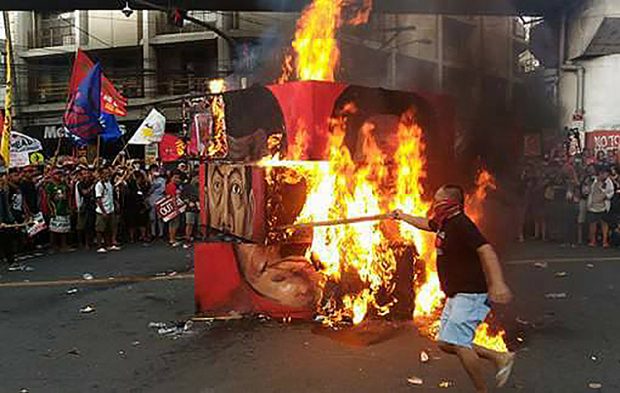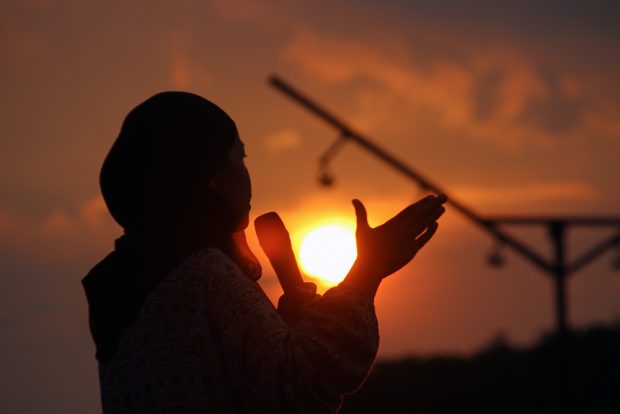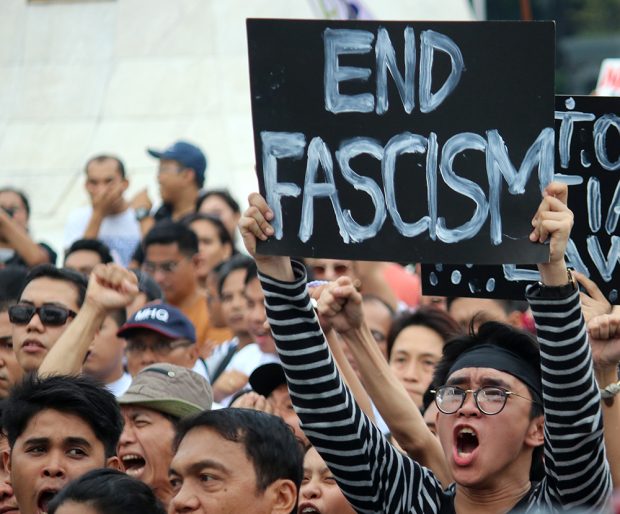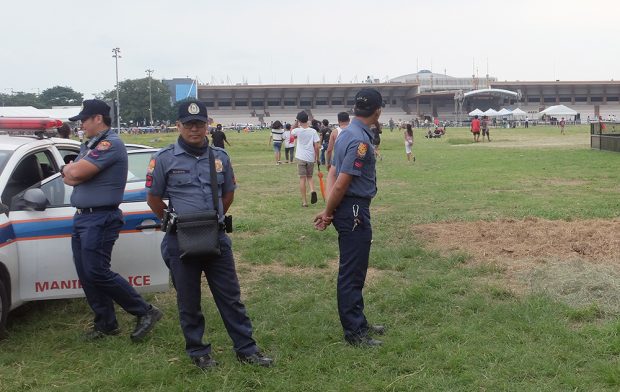by Audrey de Jesus/Ibon.org

Ibon graph.
Among the hyped claims of the Department of Finance (DOF) about the government’s tax reform package is how taxes paid by the poor will go back to them in the form of infrastructure projects and social services. The reality however is that the taxes will go largely to big-ticket infrastructure projects in and around the National Capital Region (NCR) that the poor will hardly benefit from.
TRAIN: easy money for the rich
Currently undergoing Senate deliberations, the Tax Reform for Acceleration and Inclusion (TRAIN) bill is the first of five packages under the Duterte administration’s Comprehensive Tax Reform Program (CTRP). The DOF’s version of the CTRP aims to raise an additional Php157 billion in revenues per year, while the version passed by the House of Representatives (HOR) will raise Php130 billion.
Under TRAIN, there will be higher consumption taxes through the removal of value-added tax exemptions, such as on socialized and low-cost housing and power transmission; new excise taxes on fuel, sugar-sweetened beverages (SSB), and automobiles; and reduced personal income tax rates, estate taxes, and donor’s taxes.
Despite DOF claims that the poor benefit most from their tax reform program, the truth is that the poorest majority of Filipinos bear a heavier tax burden than the rich.
The poorest 60 million Filipinos will pay Php47.0 billion in additional taxes next year, or 2.3% of their combined family income of some Php2.0 trillion. Meanwhile, the highest income 40% will pay Php47.6 billion, or only 0.8% of their total family income of some Php4.1 trillion.
This means the highest income 40% who have twice as much income as the poorest 60% of Filipinos will be paying virtually the same amount in additional taxes. Measured as a share of their total income, the poorest 60% will pay three times as much as the highest income 40% including the richest Filipinos.
TRAIN to nowhere?
Aside from covering up how much the CTRP will burden the poor, the DOF claims that the poor will mainly benefit from these tax revenues, as these will be used for the government’s infrastructure program and social services.
Studying the 2018 Budget of Expenditures and Sources of Financing (BESF) that the Duterte administration submitted to Congress is revealing. The 2018 national government budget submitted to Congress presumptuously assumes that the TRAIN will be passed and implemented next year. Yet the government’s spending pattern is not consistent with the claim that TRAIN will benefit mainly the poor.
It is misleading for the DOF to say that the TRAIN is for funding infrastructure AND social services. TRAIN is really about funding the infrastructure program, while much-needed social services continue to take a back seat, as seen in the proposed 2018 national budget.
The 2018 BESF shows that there is an exceptional 27.5% increase in infrastructure spending in 2018 to Php1.1 trillion from Php861 billion in 2017. The government reportedly needs an estimated Php8 to 9 trillion over the next five years, or Php1.6 to 1.8 trillion per year, to fund its ambitious “Build! Build! Build!” infrastructure program. The Duterte administration is clearly counting on additional tax revenues to help fund this.
However, social services spending increases by only 5.4% including just a 5.2% increase in social welfare, a 5.8% increase in education, and a 9.2% increase in health, among others. These increases are unremarkable and follow the same trend as in previous budgets even before TRAIN.
The DOF itself also explains that government infrastructure spending will increase from 4.3% of the gross domestic product (GDP) in 2017 to 6.1% in 2022, i.e. a 1.8 percentage point increase. In contrast, over the same period, health spending will only marginally increase from 0.9% to 1.0%; social protection from 1.9% to 2.0%; and education from 4.4% to 4.9 percent. Cumulatively, spending in health, social protection and education will increase from 7.2% to 7.9%, or just a 0.7 percentage point increase.
There are actually even notable cuts to the social service budget. The housing budget will be markedly cut by 68.9 percent. Under the health budget, Department of Health (DOH) hospitals will see an average 24% cut in their maintenance and operating expenses, and many regional hospitals will see cuts of 30-40 percent. The budget for preventive health programs will be cut by Php16.7 billion or 52%, including those focusing on significant public health concerns like tuberculosis, malaria and HIV.
Infra for the poor?
The DOF claim that the much higher infrastructure spending will go primarily to the poor is also misleading.
Comparing the regional distribution of the government’s flagship infrastructure projects by value and poverty incidence by region, there is a general trend of higher infrastructure spending in regions of low poverty incidence, and of low infrastructure spending in regions of high poverty incidence.
For instance, the NCR has the lowest official poverty incidence of 3.9% but takes up the largest chunk of flagship projects at Php343 billion, while the Autonomous Region of Muslim Mindanao (ARMM) with the highest official poverty incidence of 53.7% accounts for among the least flagship projects at just Php5.4 billion. Central Luzon (CL; Region III) and part of Southern Tagalog (ST; Region IV-A), which also have low poverty incidences of 11.2% and 9.2% respectively, are also among the top recipients of the flagship projects. (See Chart)
It may be argued that infrastructure spending has to consider the nature and degree of economic activity, population density, geographic conditions, and a host of other considerations. But none of these detracts from how infrastructure spending is biased away from poor regions and, indeed, is biased away from the kind of infrastructure projects that the poor directly need and will be directly using.
The flagship projects, which are concentrated in urban areas, especially in NCR, CL and ST, will mainly benefit big foreign and local corporations. Such targeted big-ticket infrastructure like mass transit, roads and bridges, railways, seaports, airports, communication and information, will primarily serve and boost the profit-making enterprises of these corporations that contribute little to develop and strengthen domestic industries.
Tax the rich, not the poor
As much as the DOF claims otherwise, the Duterte administration’s tax reform program is ultimately anti-poor and pro-rich. The poor majority will have to fork over more of their already meager incomes to pay higher consumption taxes. Revenues generated from these taxes will go towards infrastructure projects that hardly benefit them, while funding for much-need social services will be cut or remain stagnant.
Instead of further burdening the poor, the Duterte administration should be challenged to implement a genuinely progressive tax reform program and aggressively collect taxes from the wealthy and big corporations. It can raise hundreds of billions of pesos by increasing direct income taxes on the wealthiest Filipinos and by correctly collecting taxes especially on the biggest corporations.
The revenues generated from a progressive tax system should then fund infrastructure projects spread throughout the country that will support real development of local industry and agriculture. It should also be used for much-need social services and development that will truly benefit the poor. ###





